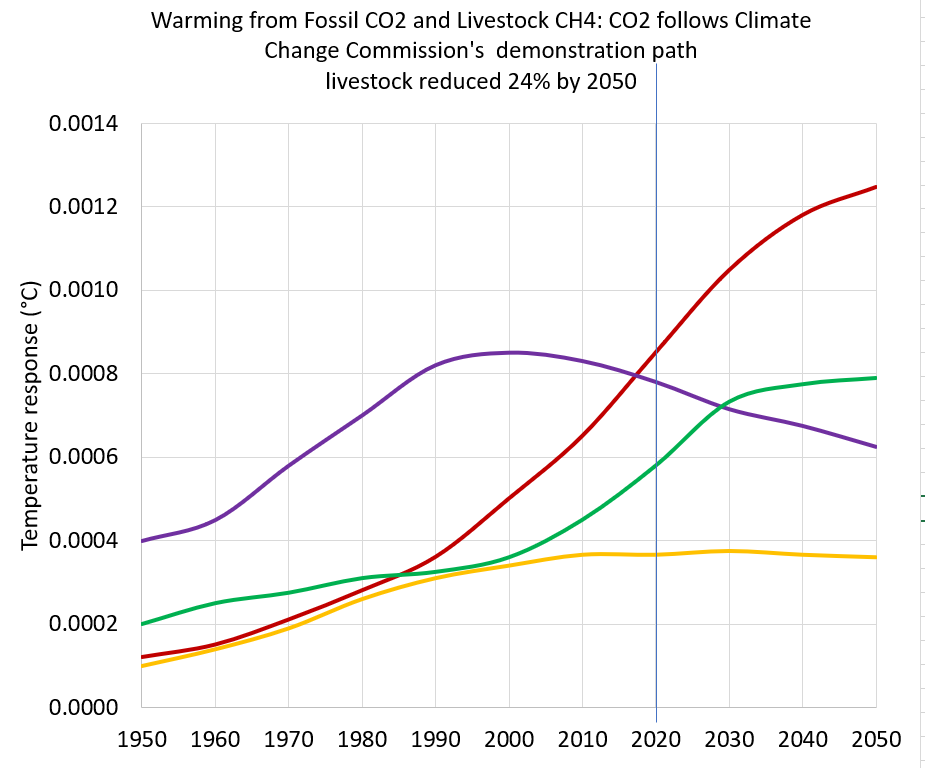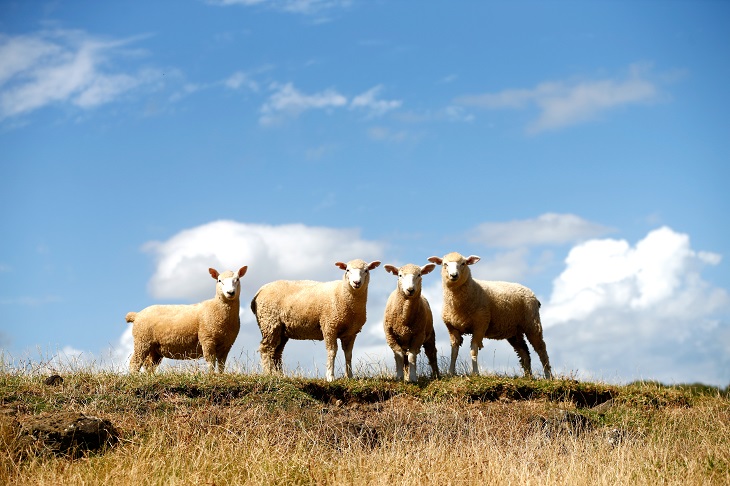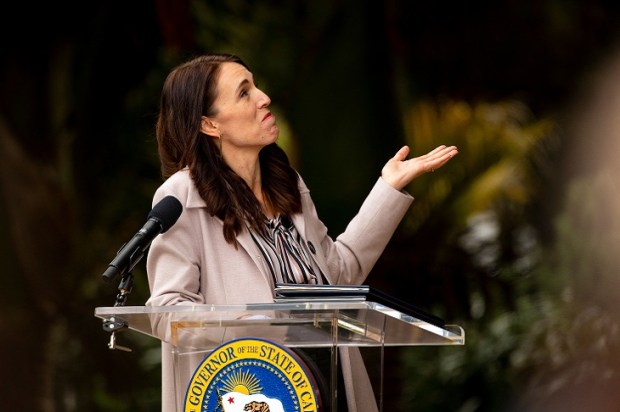New Zealand sheep farmers have been singled out to bear the brunt of our country’s efforts to stop the planet warming. Our government’s chosen metric is to measure progress by annual emissions. When applied to constant or diminishing emissions of short-lived gasses such as methane, this results in perverse outcomes.
This is my story.
I come from a long line of peasant farmers. My father emigrated to New Zealand from the Fens in England, an area with archaeological evidence of 8,000 years of agriculture. To continue farming that long requires environmentally sustainable practices.
Nevertheless, my father was adamant that industrial farming techniques that were spreading when he left 60 years ago, weren’t sustainable. Without returning animal manure, they were stripping the soil of humus.
I grew up on a farm, but studied physics. I was shearing sheep for 10 years before going farming in 1990. I work a steep, highly productive sheep and beef farm in the North Island. Our system is all pasture with no artificial nitrogen used. I love farming because it offers unlimited opportunity to use my intellectual and physical skills. I am proud to produce a product that is very close to organic. Our system is on a different planet when compared to feed-lot animals that are fed grain, grown under an industrial farming system awash with fossil fuel.
There is a wealth of agricultural research in New Zealand. Many of our world-leading experts have been made redundant in New Zealand, but remain in demand all over the world. Their hearts are still here and I have found many endlessly supportive with their knowledge.
Over the decades I have used this resource to farm more efficiently. I produce the same amount of meat from less pasture, and therefore less methane. Since 1990, I have planted willows and poplars for erosion control and now have over 6,000 that will cover 100ha when they are all mature.
Trees are the current feel-good factor, but actually, retiring land to plant is only made economically possible by efficiency gains on the remainder. Conversely, whole farms changed to pine forests are wiping out food production entirely.
The goal of the Paris Accord is to keep global warming under 1.5°C. Recent graphs from the New Zealand Parliamentary Commissioner for the Environment (PCE) highlight the cumulative nature of CO2 warming and show the inconsistency of current policy. Even with planned reductions, fossil fuels continue to climb, while sheep and beef already create no additional warming.

Source: Author, based on PCE data
I have asked the editor to print this graph, not just pretty pictures of this farm. It reveals the injustice being done to sheep farmers far more eloquently than my words. I spent weeks constructing a similar graph from first principles in 2018, because no one else would. Of course, my work could not be printed, because I am not a climate scientist. Now it has a reputable source, and still no one will print it.
I have walked to every corner of the farm and feel an intimate connection to this land. Returning from elsewhere, I get to within 100km of home and feel the land reaching out towards me. When the land suffers under drought or flood, I feel it as a pain in my own body. And I love trees, but when I see whole farms planted in a monoculture of pines, I feel sick to my stomach.
Right now, I feel like a contentious objector must have during the first world war. I am being reviled as an environmental vandal. The news feels like propaganda. A 2021 UN report calls for a 45 per cent cut in world methane. The report lays out targets for each sector and makes it clear most cuts should come from plugging pipeline leaks. Yet the commentary is summed up as … ‘New Zealand falls short of 45 per cent target.’
When I do the math, the UN target for ruminant stock works out to a 4.7 per cent reduction for New Zealand. This is under half New Zealand’s target, but no editor will print this fact because ‘readers don’t want complicated maths’, ‘you are not a climate expert’, ‘it would undermine the consensus achieved’.
I am forced to watch sustainable food production (my life’s work) destroyed even though it is expected that 1.4 billion people will be protein-deficient by 2050. I lie awake in the early hours, composing yet another submission to be filed and ignored by group of professional listeners in Wellington (the seat of our government). The road that used to be quiet at 4am roars with logging trucks carrying logs from trees planted in the 90s during the last wave of land-use change. Transport carries on warming the planet; people drive to the store when they could walk; they fly to Sydney for shopping weekends instead of buying local.
Meanwhile my sector, the only sector of New Zealand no longer warming the planet, is being gutted.
Got something to add? Join the discussion and comment below.
Get 10 issues for just $10
Subscribe to The Spectator Australia today for the next 10 magazine issues, plus full online access, for just $10.


























Comments
Don't miss out
Join the conversation with other Spectator Australia readers. Subscribe to leave a comment.
SUBSCRIBEAlready a subscriber? Log in